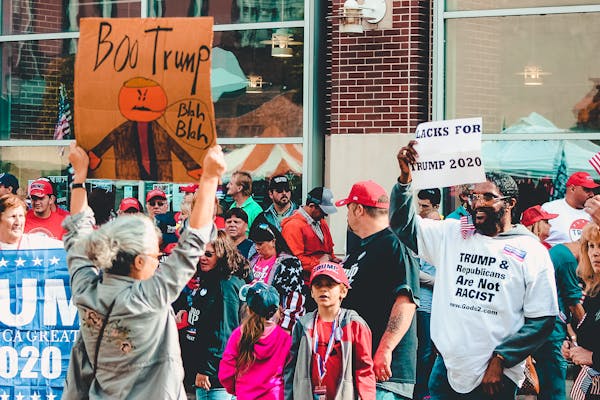It sounds like the start of a movie, but it really happened.
Harvard University, one of the richest schools in the world, actually sued the Trump administration during the COVID-19 pandemic.
Why?
Because the government tried to block funding that was supposed to go to struggling students.
Crazy, right?
But it’s not as simple as “rich school grabs money.”
And the full story says a lot about how America fights over money, fairness, and politics — especially when times are tough.
How Did We Even Get Here?
Back in early 2020, the world changed overnight.
COVID-19 shut everything down — schools, offices, stores.
Students were kicked out of dorms, scrambling for Wi-Fi, food, laptops, a place to sleep.
The U.S. government rushed to help by passing a massive bailout law called the CARES Act.
It sent money flying everywhere: hospitals, small businesses, families — and yes, universities.
Harvard’s share?
A little over $8 million.
Not a fortune compared to Harvard’s huge $40 billion endowment, sure.
But still, money that was meant to help real students trying to survive a global disaster.
Cue the Public Outrage
Here’s where things got messy.
The second people heard “Harvard” and “millions of dollars” in the same sentence, they were furious.
All over social media, people asked the obvious question:
“Why should Harvard get a penny? They’re loaded!”
President Trump caught the wave of anger and ran with it.
At a press conference, he straight-up called Harvard out, demanding they return the money.
Suddenly, Harvard — a place known for Nobel Prizes and fancy lectures — was being dragged like a greedy villain in a political firestorm.
It didn’t matter that technically, the money wasn’t coming from Harvard’s endowment.
It didn’t matter that it was legally assigned based on student need.
In politics, feelings beat facts every time.
And the feeling was: Harvard doesn’t need the help.
Harvard: “This Isn’t Fair!”
Facing a public meltdown, Harvard fought back — and they fought hard.
They said loud and clear:
- We didn’t ask for the money.
- The government’s own formula told them to send it.
- Every penny was going to help students, not pad our wallets.
In a way, Harvard was right.
The rules were the rules.
They didn’t game the system.
Still, let’s be honest:
Explaining complicated federal formulas about higher education funding during a pandemic, when millions of people were losing their jobs, was a terrible look.
Nobody had patience for technicalities.
People wanted to see rich people suffer too, not just poor ones.
So Harvard Did Something Big
Rather than keep fighting a losing battle in the court of public opinion, Harvard said, “Fine. We’ll give up the money.”
They announced they wouldn’t accept the CARES Act funds after all.
They’d take care of their students using their own resources.
But make no mistake — behind the scenes, Harvard wasn’t just rolling over.
They filed a lawsuit anyway.
Because this wasn’t just about $8 million.
It was about whether the government could simply change the rules because it felt like it.
If the Trump administration could suddenly block money meant for Harvard, they could block it for any university.
Small ones. Poor ones. Colleges that truly, desperately needed it.
And Harvard, for all its flaws, wasn’t going to let that happen without a fight.
A Fight Over More Than Just Money
What Harvard really stood up for was law and process.
The CARES Act was passed by Congress.
It had rules for who got what.
It wasn’t supposed to be a popularity contest.
If the government could ignore laws when it got mad, what stopped them from doing it again?
To anyone?
That’s the scary part — and frankly, Harvard was right to be scared too.
Why This Whole Story Feels So Human
Honestly, it’s easy to laugh at Harvard.
Rich school, Ivy League, fancy buildings — boo hoo, right?
But this wasn’t just about money.
This was about:
- How anger can drive politics way off course.
- How public perception can crush you, even when you’re technically right.
- How in a crisis, everyone — even Harvard — can become a punching bag.
The bigger truth?
Nobody looked good in this fight.
Not the Trump administration, which seemed to weaponize public outrage.
Not Harvard, which came across as out of touch at first.
Not even the public, really — we were all so mad, we didn’t stop to ask hard questions.
And maybe that’s the most American thing about the whole story.
What Happened Next
After the dust settled, Harvard kept its promise.
It didn’t take the CARES Act money.
It found ways to support students from its own pockets.
The lawsuit mostly faded into the background after Trump left office.
New leaders came in.
The pandemic crisis slowly (very slowly) got better.
And Harvard went back to being Harvard — elite, powerful, admired, hated — all at the same time.
But the memory of that moment — when a global pandemic led to a messy courtroom fight over $8 million — lingers.
Because it wasn’t really about Harvard.
It was about us.
About how we choose who deserves help.
About how anger blinds us.
About how even the biggest, strongest institutions can find themselves cornered by events they can’t control.
Final Thought
If you remember nothing else about Harvard’s battle with Trump over COVID money, remember this:
Fairness isn’t always popular. And popularity isn’t always fair.
In the middle of a global crisis, emotions were raw, mistakes were made, and people wanted someone to blame.
Harvard got caught in that storm.
Maybe next time — and let’s hope there’s no next time — we’ll all be a little slower to point fingers and a little quicker to ask:
“What’s really going on here?”



